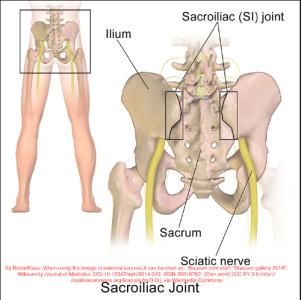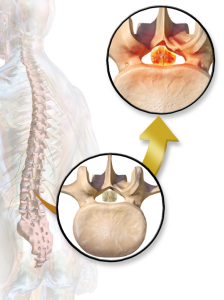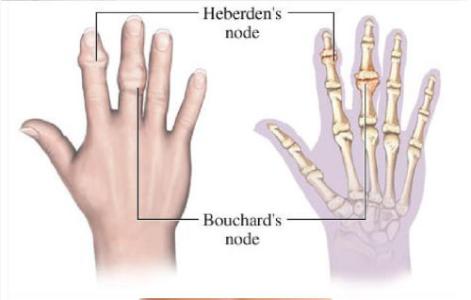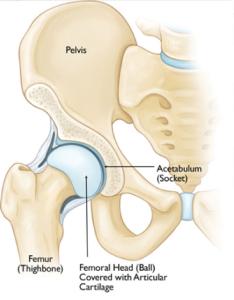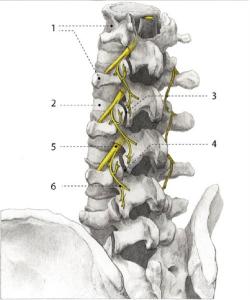Terms of Use / Disclaimer
Please carefully read these Terms of Use/Disclaimer, which apply to your access and to the use of Mission Advanced Pain Management & Spine Center, P.C. “MAPMSC” web site. By accessing or using this web site, you agree to be bound by these Terms of Use/Disclaimer.
The MAPMSC web site is intended to provide general information about the company, its services and physicians. The web site also offers materials for educational and disease and treatment awareness purposes. MAPMSC makes no representations or warranties and assumes no responsibility or liability as to the accuracy, completeness, reliability or usefulness of any information contained on this web site. Further, MAPMSC expressly disclaims any obligation to update or correct information contained on the web site and explicitly disclaims any duty to so. MAPMSC assumes no liability or responsibility for any errors or omissions in the content of the web site. MAPMSC reserves the right to make additions, deletions or modifications to the information or materials on this web site at any time and in any way without notice.
Information Obtained Through the MAPMSC Web Site Does Not Constitute Medical Advice
THE INFORMATION PRESENTED ON THIS WEB SITE AND ANY INFORMATION TRANSMITTED TO YOU ELECTRONICALLY IN RESPONSE TO A MESSAGE FROM YOU IS NOT INTENDED TO CONSTITUTE MEDICAL ADVICE, DIAGNOSIS OR TREATMENT AND SHOULD NOT BE RELIED UPON AS THE BASIS OF ANY HEALTH CARE DECISION. ALWAYS VISIT OR SPEAK TO A QUALIFIED HEALTH CARE PROVIDER IN PERSON PRIOR TO STARTING ANY NEW TREATMENT OR WITH ANY QUESTIONS YOU MAY HAVE REGARDING A MEDICAL CONDITION. THIS MAPMSC WEB SITE DOES NOT DIRECTLY OR INDIRECTLY PRACTICE MEDICINE OR DISPENSE MEDICAL ADVICE.
Indemnification
By accessing and/or using the web site, you agree to indemnify, defend and hold MAPMSC, our subsidiaries and affiliates, and their respective officers, directors, employees, members, agents, representatives, business partners, information providers, licensors and licensees and their respective heirs and assigns (collectively, the “Indemnified Parties”) harmless from and against any and all liability and costs, including, without limitation, reasonable attorneys fees and expenses, incurred by the Indemnified Parties in connection with any claim arising out of, or breach by you of, these Terms of Use/Disclaimer or from any other unauthorized use by you of this web site. You agree to cooperate as fully as reasonably required in the defense of any claim. We reserve the right, at our own expense, to assume the exclusive defense and control of any matter otherwise subject to indemnification by you. You shall not enter into any settlement agreement that affects the rights of any of the Indemnified Parties or requires the taking of any action by any of them, without our prior written approval.
Disclaimer of Warranties and Liability
THE CONTENT ON MAPMSC’S WEB SITE IS PROVIDED “AS IS” “WITH ALL FAULTS” AND “AS AVAILABLE” AND MAPMSC MAKES NO REPRESENTATIONS OR WARRANTIES OF ANY KIND, WHETHER EXPRESS OR IMPLIED, CREATED BY LAW, CONTRACT OR OTHERWISE, INCLUDING, BUT NOT LIMITED TO, ANY WARRANTIES OF MERCHANTABILITY, FITNESS FOR A PARTICULAR PURPOSE, TITLE OR NON-INFRINGEMENT. MAPMSC MAKES NO REPRESENTATION OR WARRANTY THAT ACCESS TO THE WEB SITE WILL BE AVAILABLE ON A CONTINUOUS BASIS, WILL BE UNINTERRUPTED, OR THAT THE INFORMATION CONTAINED ON THE WEB SITE WILL BE TIMELY, COMPLETE OR ERROR FREE.
EACH PERSON ASSUMES FULL RESPONSIBILITY AND ALL RISKS ARISING FROM ACCESS AND USE OF MAPMSC’S WEB SITE. IN NO EVENT SHALL MAPMSC OR ANY OF OUR SUBSIDIARIES AND AFFILIATES AND THEIR RESPECTIVE OFFICERS, DIRECTORS, EMPLOYEES, MEMBERS, AGENTS, REPRESENTATIVES, BUSINESS PARTNERS, INFORMATION PROVIDERS AND LICENSORS AND THEIR RESPECTIVE HEIRS AND ASSIGNS BE LIABLE FOR ANY DAMAGES OF ANY KIND OR NATURE, INCLUDING, BUT NOT LIMITED TO, DIRECT, INDIRECT, INCIDENTAL, CONSEQUENTIAL, EXEMPLARY, SPECIAL (INCLUDING LOSS OF PROFIT), PUNITIVE OR OTHER DAMAGES ARISING FROM OR IN CONNECTION WITH THE EXISTENCE, ACCESS OR USE OF THE MAPMSC WEB SITE OR THE INABILITY TO USE OR LOSS OF DATA CONTAINED WITHIN THE WEB SITE, REGARDLESS OF WHETHER MAPMSC OR ANY OF THE OTHER ENTITIES OR PERSONS LISTED ABOVE HAS BEEN ADVISED AS TO THE POSSIBILITY OF SUCH DAMAGES. IN STATES THAT DO NOT ALLOW THE EXCLUSION OR LIMITATION OF CERTAIN CATEGORIES OF DAMAGES, MAPMSC’S LIABILITY, AND THAT OF ITS SUBSIDIARIES OR AFFILIATES AND THEIR RESPECTIVE OFFICERS, DIRECTORS, EMPLOYEES, AGENTS, REPRESENTATIVES, BUSINESS PARTNERS, INFORMATION PROVIDERS AND LICENSORS AND THEIR RESPECTIVE HEIRS AND ASSIGNS IS LIMITED TO THE FULLEST EXTENT ALLOWED BY SUCH STATES’ LAWS.
We do not warrant that the functions or informational materials contained in or accessed through our web site are free of computer viruses or other harmful components. Although we make a good faith effort to update the content of our web site periodically, we do not have a duty to update information contained in our web site, and we will not be liable for any failure to update such information.
MAPMSC assumes no responsibility or liability arising from content of the web site nor for any error, defamation, libel, slander, omission, falsehood, obscenity, profanity, danger or inaccuracy contained in any information within the web site or accessed through the web site.
Third Party Sites and Linking
We may provide links to certain other third party web sites merely as a convenience for users of the MAPMSC web site. These third party web site are maintained on third party servers and are not under the control of MAPMSC. We do not control the material on such third party web sites. Access to such third party web sites is at the user’s own risk and MAPMSC is not responsible for its accuracy or reliability. Inclusion of links to third party web sites does not constitute an endorsement, approval or guarantee the accuracy of the contents of any linked web sites. We expressly disclaim any responsibility for the content of any third party web sites linked to our web site. We urge you to use discretion when you access any third party web sites linked to our web site.
Privacy
Personal information you provide through the website is subject to our Privacy Policy, which is updated periodically.
Copyright, Copying and Trademark
The content of the MAPMSC web site is protected by copyright, trademark and other applicable intellectual property laws and is owned or controlled by MAPMSC or a party credited as the provider of specific content. Unless otherwise stated, you may download, print out, or send a copy of the web site materials to others so long as each copy indicates the appropriate copyright notice and is used only for personal use. It is expressly prohibited, however, to reprint or electronically reproduce any text, document, graphic or audio-visual material for bulk or commercial use without prior written consent obtained from MAPMSC.
Modifications to Terms of Use/Disclaimer
MAPMSC may modify these Terms of Use/Disclaimer or any portion of them at any time and in any way with or without notice to you by updating this posting. Your use of this web site is subject to any such revisions and you should periodically visit this page to review the current Terms of Use/Disclaimer that apply to your use of this web site. Your continued access to or use of this web site and/or any services offered through it shall be your conclusive acceptance of these Terms of Use/Disclaimer, including any modifications.
Miscellaneous
These Terms of Use/Disclaimer constitute the entire agreement between you and MAPMSC and govern your use of the web site and any information or services offered on the web site. This agreement supersedes any prior terms of use or other agreements between you and MAPMSC concerning use of this web site.
These Terms of Use/Disclaimer are governed by and shall be construed in accordance with the laws of the State of California without regard to its conflict of law provisions. By accessing or using this web site, you agree to submit to the personal and exclusive jurisdiction of the federal and state courts located within the State of California for resolution of any disputes arising out of or relating to these Terms of Use/Disclaimer or your use of the web site. You agree that, except as expressly provided in these Terms of Use/Disclaimer (and other than MAPMSC and its affiliates), there shall be no third party beneficiaries of these Terms of Use/Disclaimer.
The failure by us to exercise or enforce any right or provision of these Terms of Use/Disclaimer shall not constitute a waiver of such right or provision, and no waiver shall be enforceable unless in writing and signed by the party against whom enforcement is sought.
If any portion of these Terms of Use/Disclaimer is held to be unenforceable, the unenforceable portion will be construed in accordance with the relevant law to as nearly as possible reflect the original intentions of the parties and the remainder of the agreement will be enforced as written.
Thank you for visiting our web site. If you have questions or comments regarding our web site, they should be directed to:
Privacy Officer/Administrator
Mission Advanced Pain Management & Spine Center - Privacy Officer
P.O.Box 2278, Mission Viejo, CA 92691
T: 949-441-5445 F: 949-441-5450 E: info@abovepain.com



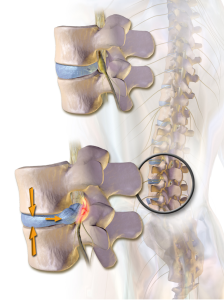
![By James Heilman, MD (Own work) [CC BY-SA 3.0 (http://creativecommons.org/licenses/by-sa/3.0) or GFDL (http://www.gnu.org/copyleft/fdl.html)], via Wikimedia Commons](/assets/components/phpthumbof/cache/vcfrac3.25c355a85cb0101f004729be8d39bec3172.jpg)
